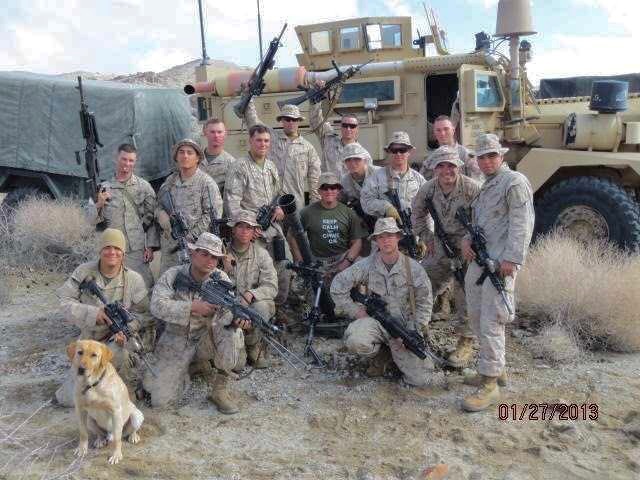Leadership and first times—Reminds me of Sergeant Peters, probably the first marine I was accompanied to the fleet by. I truly admire him now, though I didn’t think so back then. As my squad leader, Sergeant Peters was extremely tough on us. There was borderline hazing going on. But looking back, I came to understand why he did the things he did over the course of our workup and my first deployment with him.
I came to understand why Sergeant Peters was so competitive, always striving to be first during gun drills, ruck marches, battalion runs, anything. It wasn’t to make us like him; it was so we could survive, be better trained individuals and accomplish what we set out to do. I have respect for him as a leader because I realized he was trying to elevate us to his standard, showing leaders are put into that position for their ability to outperform. It showed me that he wasn’t just given the rank of Sergeant or the billet of squad leader for nothing. He had earned it because of how good he was at his job, as a leader should.
Sergeant Peters and I became close during my first deployment in Kajaki, Afghanistan. We had a lot of brotherly moments I still remember today. He was truly one of the best marines among us, and I aspire to stay as competitive as him no matter my position in life.
I also remember a different type of leader—1st Sgt Dickinson. During my time in Third Battalion, Fourth Marines he had this disdain for us. Unlike Sergeant Peters who was showing us tough love, our new 1st Sgt did not show us any.
I remember on our deployment he had a minor injury from simply working out and he immediately requested to go back to the U.S. mainland and end it there. It seemed more like an excuse to get out of the deployment, but I was just happy he wasn’t going to be around anymore. I realized for the first time that not all leaders deserve their title and authority. Most do, but a few slip through the cracks and 1st Sgt Dickinson was one of them. But the majority of my leadership in the Marine Corps was good.
No matter who is in charge you need to be able to work with them and adjust. The Marine Corps threw me in many different environments of learning, training, and operating that being flexible is one skill you quickly pick up. The biggest adjustments for me came with my first deployment.
What I remember most about that experience is the exhaustive work schedule. We were on this rotation. Six hours of standing post, usually at our Forward Operating Base’s (FOB) entry control point. Which is mentally exhausting because during that time you have to be fully alert. Then, six hours of reaction force. During this period whatever command needed done, we were the squad to carry it out. This included security patrols, resupplies, intelligence briefings, or any work needed done around the FOB. If you were lucky your reaction time landed sometime at night, when it was mostly quiet. If you were unlucky you got spun up for a medevac.
Most medevacs were for Afghan locals that got caught up in IEDs or small arms fire by invading Taliban forces. Any locals brought to our ECP, we did our best to treat them and if it was serious enough send them to a larger allied base with better medical supplies. After you rotated off of the reaction force you were on your rest cycle. This was essentially time those marines had to themselves without getting messed with by command.
Sleep is a valuable resource on deployment so anytime it was available we all tried to take advantage of it. The mental stress of being in a combat zone was always there: constantly being observant and aware of possible IEDs during patrols, suicide bombers while standing post, and ambushes while conducting resupplies or medevacs.
Working through all that was tough, but it definitely helped me handle such situations better. Especially now, I tend to look back at what my mind and body has had to overcome during those times, and that helps give me confidence for anything I choose to achieve later in life.


